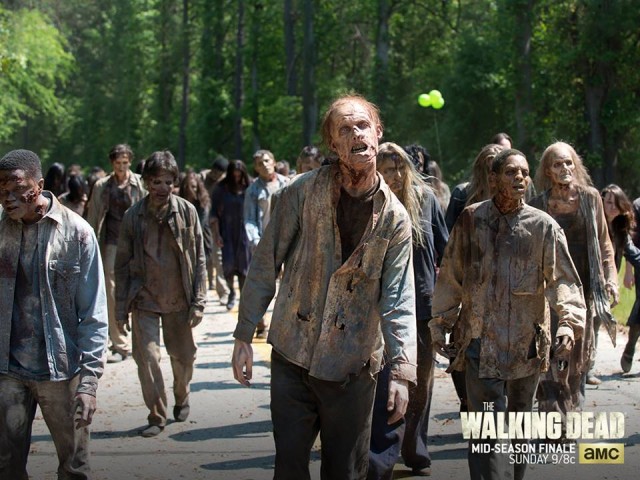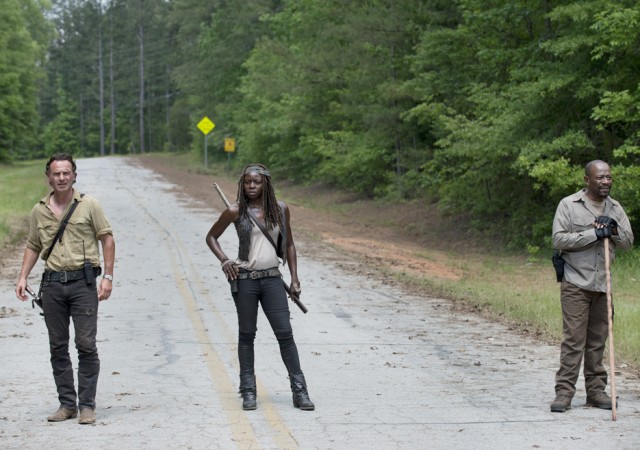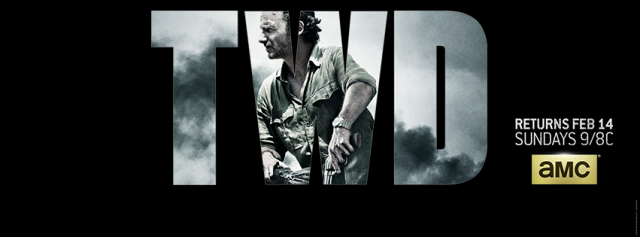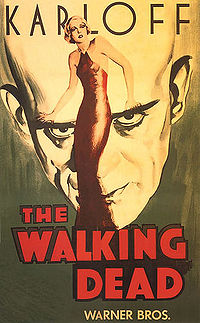Editor’s note: Although I have had occasion to wax un-poetically about some of the television I enjoy, the original plan was not to post this review here on my main blog. However, as I started to write, it became a little longer than I had planned so please indulge me and hopefully enjoy my take on season 6A of The Walking Dead.

Well it is early December and we are at the midday point of the sixth season of The Walking Dead.
At this point in the season and the show at large, folks like me will begin to Monday quarterback what we have seen over the past eight weeks, casting a critical eye and waiting with bated breath for the first signs of fatigue for a show that for the last few years appeared to show no signs of slowing down; a challenge with this or any show that has had a decent run, is to keep the stories and characters fresh. This keeps the audience on their toes, begging for more and wanting to see what is in store for the not-so-merry band of zombie apocalypse survivors.
Onto my thoughts. While it definitely had its noteworthy moments and really good episodes, overall season 6A definitely tested the limits of my patience when watching a show live week-to-week. The pacing and plotting was a bit up and down and I felt like we spent an unnecessary amount of time with people (read most of the Alexandrians) whose collective fate I was not all that concerned about (sorry).

And then there was the whole ‘Glenn Death’ thing, which I will not delve into simply because a large part of the fumble with this story arc would us meta*, and I just want to stick with the narrative as I saw it occur on my screen.
Allow me a sec to jump back before I move forward onto the episode that wrapped up the first eight episodes, Start to Finish. As you watched the episode, you were certain to pick up the title being said in dialogue (by a dying Deanna Monroe, played by force of nature Tovah Feldshuh), but for the general population, the title may have also incorrectly signaled a conclusion to this chapter of the story, kind of the way that Coda from last season did. Fast forward to a year later and that is not exactly how it played out here. By the end of the 43-minute run time, we were left with poor, ill-fated Sam calling out to his seemingly unaware mother, “Mom. Mom. Mom.” And then … fade to black! Wait, what? That’s it? Yes indeed, that was it.
Now I will say that this was not a bad episode by any stretch; it was a pretty solid one with a cliffhanger. But it was not what we have come to expect in our “midseason finale.” And therein lies the problem.
The way the television universe currently operates, we as an audience are hungry for the next earth-shattering “OMG” moment/water cooler conversation talking points (usually triggered by the demise of a major character). Actually this is not so different than in times past – but the proliferation of social media highlights and magnifies the audience’s reaction and engagement with what they are consuming. When we get that moment, great, when we are less than satisfied with the payoff or lack thereof, cue the rotten tomatoes. Add to this the contrivance known as the midseason hiatus and you have the potential recipe for a momentum killer.
Because of this weeks/months long break within a season, we for all intents and purposes now have TWO seasons, which for me, sets an expectation of each part being neatly book-ended as much as possible – not necessarily a full conclusion, but more like we have a nice balance of resolution in some areas and a few breadcrumbs that will leave us curious enough to come back for more. Did 6A do that for me? Read on to the end to find out. But before that …
… here are a couple of other points worth mentioning. They serve as counterpoints to my argument presented above and I hope offer some perspective:
1) Giving You (TWD) the Benefit of the Doubt. Hell, the show is in its 6th season, has redunkulous ratings, a loyal, passionate fanbase and makes tons of money for AMC. That is a lot of televisual capital in the bank. So maybe, just maybe the creatives can be given some leeway to spend some of that goodwill in trying out new ways to entertain the audience? Say spend seven of the first eight episodes looking at 24-36 hr window from multiple perspectives? It is definitely ambitious storytelling to be sure. But a key is to make sure it is tight. In this instance, as I watched and re-watched it felt like a case of being locked in and committed to a storytelling device to the point where it may be a liability to the actual story. We won’t know for sure until late March/early April 2016, which leads to my next point ….
2) The Long Run. Right now, I am confident that by episode 16 (yeah I know), there will be a narrative payoff that will present a completely satisfying picture at the end. I do feel like the ability to effectively implement this “long game” approach to storytelling is a clear advantage a pay cable show such as Game of Thrones has in creating its arcs for a season. Not only are the producer given essentially a full hour (usually falls in the 50-55 minute range), but the show runs for a consecutive 10 weeks (give or take a holiday). So even while the season is shorter, GoT is able to get through its story without the concern of going on an overly long hiatus. Unfortunately, when you try a similar format on a show with a pretty long hiatus, the result is well, TWD 6A.
Enough of that; now onto 6B. Simply stated, I am really looking forward to the back half. I have a vague understanding of what may lie ahead and as I said above; with it comes the promise of a narrative payoff in both the short and long term. Beyond that, I am so invested in the characters it would take a whole hell of a lot to get me to turn away and not look back.
In other words, that means come Valentine’s Day, you will know where to find me … nestled comfortably in my bed, hot cocoa at the ready, and tuned into AMC.

———————————
* Speaking of meta, there was also the prologue for 6B that inconveniently aired during the first ad break of AMC’s latest venture, Into the Badlands. I think if the scene aired post credits (like most of these have done in the past) it would have worked to the episode’s favor. But again this is kinda meta, but it is something worth thinking about.

